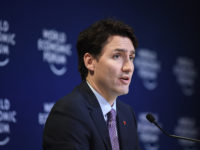The intellectual property chapter has not been a focal point of the NAFTA negotiations this week in Montreal, but the successful conclusion of the TPP11 (or CPTPP) serves as a reminder that it is likely to emerge as a contentious issue in the months ahead. The U.S. position on the NAFTA IP chapter is clear: it wants to replicate the original TPP IP chapter. Yet Canada now stands opposed to that chapter having backed the suspension of many of its provisions including copyright term extension, digital locks, notice-and-takedown, patent protections, biologics protections, and pharmaceutical plan rules. In fact, Prime Minister Justin Trudeau this week cited changes to the IP provisions as one example of how the government worked to make the TPP more progressive.
Archive for January 26th, 2018

Law Bytes
Episode 259: The Privacy and Surveillance Risks of AI Chatbot Reporting to Police
byMichael Geist

March 2, 2026
Michael Geist
February 23, 2026
Michael Geist
February 9, 2026
Michael Geist
Episode 256: Jennifer Quaid on Taking On Big Tech With the Competition Act's Private Right of Access
February 2, 2026
Michael Geist
The Law Bytes Podcast, Episode 255: Grappling with Grok – Heidi Tworek on the Limits of Canadian Law
January 26, 2026
Michael Geist
Search Results placeholder
Recent Posts
 The Law Bytes Podcast, Episode 259: The Privacy and Surveillance Risks of AI Chatbot Reporting to Police
The Law Bytes Podcast, Episode 259: The Privacy and Surveillance Risks of AI Chatbot Reporting to Police  Nobody Wants This: Senate Rejects Government’s Anti-Privacy Plan for Political Parties By Sending Bill Back to the House With a Sunset Clause
Nobody Wants This: Senate Rejects Government’s Anti-Privacy Plan for Political Parties By Sending Bill Back to the House With a Sunset Clause  The Law Bytes Podcast, Episode 258: Jaxson Khan With an Insider Perspective on AI Policy Development in Canada
The Law Bytes Podcast, Episode 258: Jaxson Khan With an Insider Perspective on AI Policy Development in Canada  Time for the Government to Fix Its Political Party Privacy Blunder: Kill Bill C-4’s Disastrous Privacy Rules
Time for the Government to Fix Its Political Party Privacy Blunder: Kill Bill C-4’s Disastrous Privacy Rules  The Law Bytes Podcast, Episode 257: Lisa Given on What Canada Can Learn From Australia’s Youth Social Media Ban
The Law Bytes Podcast, Episode 257: Lisa Given on What Canada Can Learn From Australia’s Youth Social Media Ban

